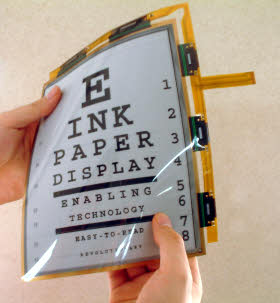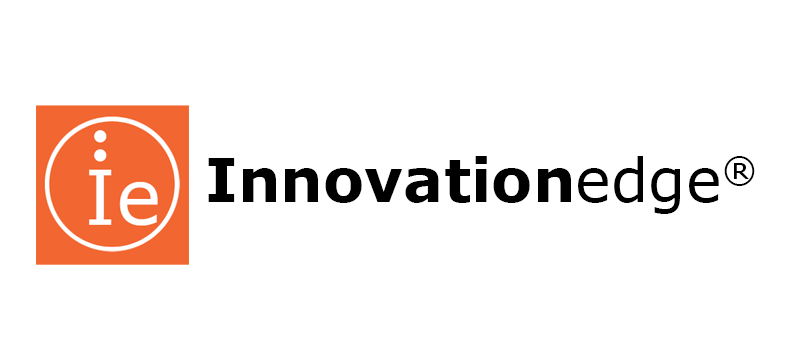One of the most exciting opportunity areas for targeted innovation is in the display of digital information.
The information-rich world of the film Minority Report is becoming closer to reality each day, with some practical twists. Today’s Wall Street Journal reports that Intel and Microsoft are teaming up to provide smart digital displays in retail stores that can look back at the viewer, identify gender and other information using cameras and image processing, and then automatically offer information about products that may be of interest to the viewer, including instant coupons, directions to the product in the store, etc. The article, “Intel, Microsoft Offer Smart-Sign technology” by Don Clark and Nick Wingfield (p. B6, Jan. 12, 2010), describes smart-signs as a way for retailers to fight back against online sellers. The technology builds upon the embedded computing capabilities that Microsoft and Intel have applied to point-of-sale systems, office equipment, car entertainment, and other systems. They are now collaborating to specify hardware and software components that could become a standard platform for other developers. They will seek to offer features similar to those provided by Amazon.com, which can identify returning customers and tailor promotions to them based on their history. It’s all about personalizing the shopping experience–but doing that without infringing upon consumer privacy may be a complex issue. A spokesman stated that the current technology does not identify individuals, only gender. Perhaps the future may involve an opt-in system for those who want to be identified and receive discounts or other benefits in return.
 Meanwhile, a variety of companies are developing flexible thin-film displays. One interesting technology space is electronic paper, which reflects light like ordinary printed paper to create images or text. Rigid versions of electronic paper are in use in some popular portable readers, while flexible versions are being developed by companies like E-Ink. A variety of technologies that have been used for electronic paper are summarized at Wikipedia, including electrophoresis, electrowetting, and electrofluidic displays.
Meanwhile, a variety of companies are developing flexible thin-film displays. One interesting technology space is electronic paper, which reflects light like ordinary printed paper to create images or text. Rigid versions of electronic paper are in use in some popular portable readers, while flexible versions are being developed by companies like E-Ink. A variety of technologies that have been used for electronic paper are summarized at Wikipedia, including electrophoresis, electrowetting, and electrofluidic displays.
What could your business model do with flexible smart displays, if they become inexpensive and easy to program or control? What could you do by adding sensors (perhaps sensors that respond to pressure, temperature, or capacitance to detect touch, or micro-electronic devices such as accelerometers or level indicators)? If you could track and interpret the actions a customer takes with a smart tag, for example, could that help you? What could you do if your smart tags or smart panels could communicate with each other and a network?
Will flexible displays become integrated with smart-sign technology to provide, say, magazines that can read you?
There is a growing body of publications and patents addressing creative aspects of what can be done with these emerging technologies. What will it mean for you–or for your competitors? What will these technologies mean for your supply chain? What do they mean for packaging, for shelf management, for inventor management, for market research, or for product safety? Are you aware of the future and how it might impact the business? At Innovationedge, we’re ready to work with you to find these answers for your company and to generate the intellectual assets that you will need to be prepared for a smarter, information-rich future. We’re ready to help you develop strategies and tools to reduce the impact of competitive disruptive innovation, while increasing your own opportunities to create intellectual assets and benefit from the emerging capabilities of the future.
In fact, there is one other very cool technology from Asia that you ought to be thinking about when you start exploring a world with smart, flexible display technology. If that doesn’t ring a bell, maybe you should give us a ring and let us show you how to do targeted innovation to help you go beyond mere brainstorming by generating the intellectual assets you need for the future. We tailor our approaches to each client, but in this case, we are likely to apply some of the insights from our recent book, Conquering Innovation Fatigue: Overcoming the Barriers to Personal and Corporate Success, a John Wiley & Sons book by Jeff Lindsay, Cheryl Perkins, and Mukund Karanjikar. Call us at 920-967-0470.
May your innovations be flexible and smart!
